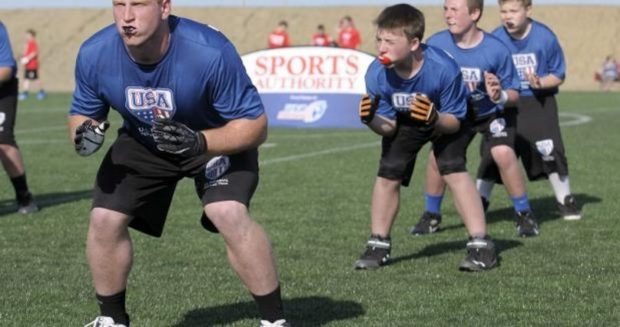Here is what emotional intelligence is not: touchy-feely, weak, only for females. It’s not always agreeable. It has nothing to do with being smart in the classroom.
To play football at any level requires emotional intelligence because the sport is not all about skill and grit. It takes emotional intelligence to get along with coaches, teammates and to get the best out of the collective. Sometimes, it also takes a bunker crop of emotional intelligence to deal with certain family members.
Emotional intelligence doesn’t mean you don’t show emotion during times of tragedy or stress.
So, what exactly is emotional intelligence?
Dr. John D. Mayer, The Personality Analyst, and his colleague, Peter Salovey, describe emotional intelligence as, “the capacity to reason about emotions and emotional information and of emotions to enhance thought.”
Mayer and Salovey believe that individuals with high levels of emotional intelligence can solve a variety of emotion-related issues accurately and quickly. They also can “read” and interpret emotions in people’s faces.
The mentally tough listen – really listen – to others, then respond in ways that resolve conflicts instead of escalating them. The mentally tough know what creates positive behavior in themselves and others.
In a nutshell, emotional intelligence is the ability to discern people and situations, identify answers by asking the right questions and maintain emotional steadiness regardless of the circumstance.
Let’s break these down to see how young athletes can utilize them to develop a higher level of emotional intelligence.
- Discern. When law enforcement conducts an investigation, it puts the subject under surveillance. One reason is to identify a pattern of behavior. The goal is to discern the perpetrator’s motivation, thinking and emotions. The ability to analyze what makes people tick is at the forefront of emotional intelligence. It’s simply being keenly aware of what’s going on with yourself and the people around you. What thoughts occupy your thinking during any given time of day? When are you the most comfortable? The most uncomfortable? Understanding what makes you tick is often the key to developing emotional intelligence to discern others.
- Identify. Are you always asking questions? Do you actively seek out answers to what’s happening around you? Do you pursue new insight into others’ behaviors? If so, you possess the ability to dig deeper to identify the root of why someone is acting the way they are or why you respond to situations the way you do. You’re self-aware of your thoughts and emotions and, therefore, more aware of others. You can develop a higher level of emotional intelligence by asking open-ended questions that start with who, what, when, where and how. It’s a great way to unlock information to identify and solve your personal challenges and others as well.
- Maintain. As an athlete, you already know how to maintain discipline in the locker room and on the field. But what about maintaining control in your emotional reactions to those who might press your buttons? The mentally tough use emotional intelligence to find a balanced path to personal interaction success. Maintaining self-discipline helps you not to explode when aggressively confronted by a bully. It helps you remain steady and calm in emergencies. It helps you gather inner-strength and know there always is more than one option.
“Mental toughness is many things and rather difficult to explain,” Pro Football Hall of Fame coach Vince Lombardi once said. “It is combined with a perfectly disciplined will that refuses to give in. It’s a state of mind – you could call it character in action.”
Emotional intelligence is not denying emotions. It’s being in touch with emotions. It’s not girly girl or wimpy. It’s a sign of mental toughness.
In what ways will you acquire the skills to develop your emotional intelligence?

